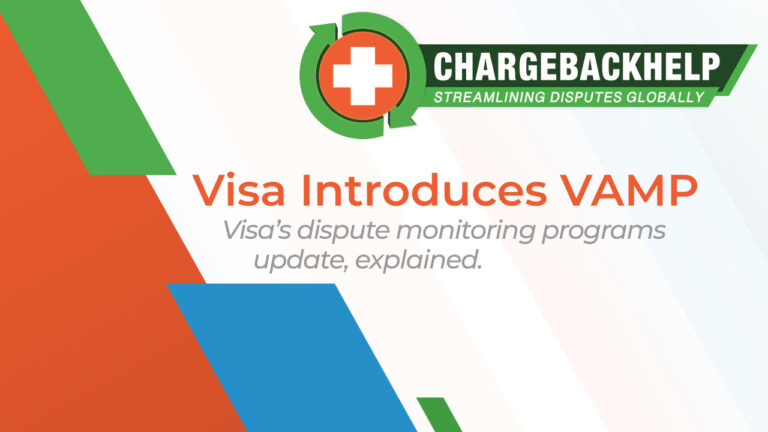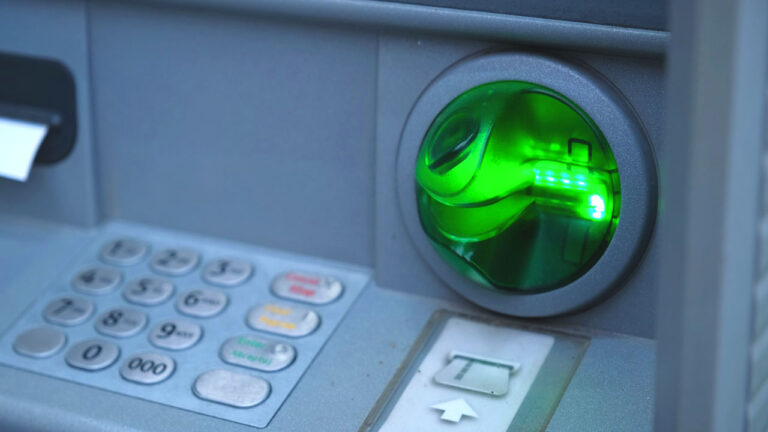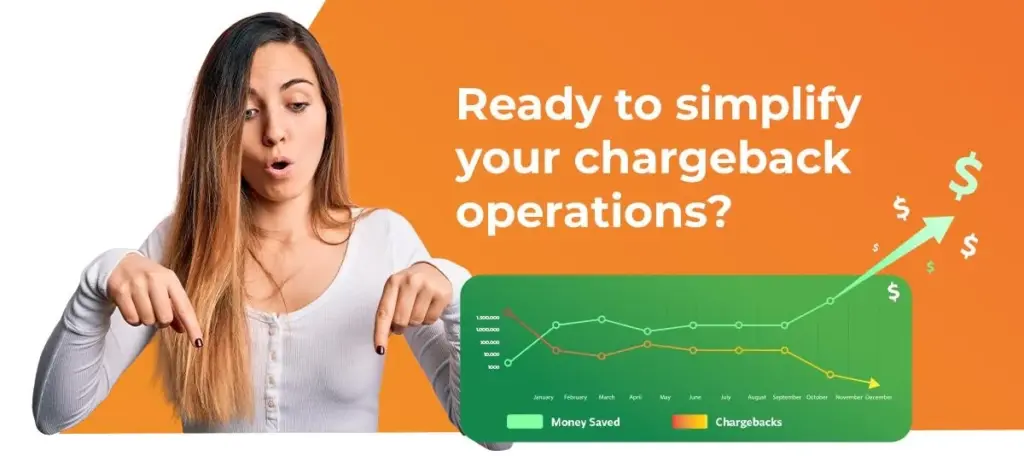Chargeback Prevention Tools Explained

In medicine, they say an ounce of prevention is worth a pound of cure. That’s certainly the case when it comes to fighting fraud and chargebacks. Winning a chargeback dispute is definitely something to cheer for, but preventing a chargeback in the first place is a far better route. The good news is that there are a variety of tools, including chargeback alerts and dispute management platforms, that merchants can use to prevent chargebacks from being filed. We’ll take a closer look at chargeback prevention tools below.
Why Prevention is Best When Fighting Chargebacks
If you win a chargeback dispute, you’ll recover the revenue from the disputed transaction. For example, if someone buys a hundred-dollar pair of shoes and then files a chargeback, you’ll get that hundred dollars back should you win the chargeback dispute. If you lose, that money is gone, and then some.
Whether you win or lose a chargeback dispute, however, you will have to pay chargeback fees, which typically cost between $20 to $100. Your chargeback ratio will increase and if it gets high enough, you may face increased processing fees on every order (including those that don’t result in chargebacks). If chargebacks persist past specified thresholds, card networks place you into a chargeback monitoring program where you can face rising fees and penalties.
For example, if your chargeback ratio meets or exceeds .9% and you incur more than 100 chargebacks, Visa will place you in its Visa Dispute Monitoring Program (VDMP). If chargebacks continue to exceed .9%, from month 5 onward you will be hit with a $50 penalty per chargeback. From month 10 onward, you will have to pay a review fee, which costs $25,000 per month. With Mastercard, review fees can reach $200,000. Card networks may force merchants to hire third-party oversight at their own expense as well.
NOTE: Visa recently announced upcoming changes to their European compliance programs. To learn more, read our full article on the topic.
Ultimately, chargebacks can be a major burden on merchants, banks, and card networks. As such, it is crucial to prevent them. Fortunately, there are now a variety of tools you can use to fight chargebacks by providing more data and opportunities to resolve disputes before a chargeback is filed. Research by Aite Group, for example, noted that one large merchant saw a “65% (chargeback) deflection rate among issuers that have the ability to display enhanced transactional detail.” Further, a card issuer reported a 30% deflection rate.
Ethoca by Mastercard
One of the most powerful tools for preventing chargebacks and fraud is Ethoca Consumer Clarity by Mastercard. Ethoca was founded back in 2005 and was acquired by Mastercard in 2019.
Ethoca Consumer Clarity
Consumer Clarity can be used to share in-depth transaction data with cardholders directly via their online statements. The issuer’s call centers also receive this data, allowing them to disrupt first-party fraud by tying cardholders to their purchases. This information is shared quickly — reducing confusion, and deflecting chargebacks.
Why Consumer Clarity is Crucial
Chargebacks are often the result of misunderstandings. A customer may have made a legitimate purchase, for example, but simply forgot about it. In fact, AITE Group found that 27% of consumers who contacted an institution to dispute a charge realized that the charge was correct after being supplied with more transaction details. The right data can jog a customer’s memory and prove that the purchase was legitimate.
Here’s How Ethoca Consumer Clarity Works
- A cardholder contacts their issuing bank to inquire about or dispute a charge. They might call their bank or use their banking app.
- With Consumer Clarity, deeper transaction data concerning a specific purchase is automatically provided to both the issuer and cardholder. This can include clear merchant names, merchant logos, merchant contact information and even detailed digital receipts.
- A potential dispute is deflected when the cardholder and/or issuer recognizes that the cardholder made the purchase and the need for a dispute is eliminated.
Ethoca Alerts
With Ethoca Alerts, merchants are provided crucial time to resolve a dispute before a chargeback is filed. These alerts warn merchants that a chargeback is pending. By issuing a refund before the chargeback is filed, merchants can protect their chargeback ratio and avoid chargeback fees. In one case study, a luxury fashion retailer prevented roughly 12,000 fraudulent disputes totaling $7.5 million in a single year by using Ethoca Alerts. Meanwhile, a home improvement retailer prevented nearly 16,000 chargebacks totaling $15.5 million. By helping you maintain a low chargeback ratio, Ethoca alerts can help you save a lot more money.
Fraud Insights
This platform offered by Ethoca makes it easier for merchants to step back and see the big picture. Many companies strive to be data-driven and by gathering and presenting data, Fraud Insights helps merchants identify the common causes of chargebacks (among other things). From there, the merchant can work to address issues.
Verifi, a Visa Company
Verifi was founded in 2005 in Los Angeles, CA, and was acquired by Visa in 2019. The company has a strong reputation for listening to clients and designing solutions based on feedback from them.
Order Insight
Visa has estimated that nearly 3 million chargebacks are the result of confusion on the part of the cardholder and them not recognizing a legitimate transaction. This is often the result of vague billing descriptors. For example, a customer may have visited Joe’s Online Store to buy shoes. However, on their credit card statement, the transaction might show up as “Joe’s Holdings- Company,” which the customer may not recognize.
Like Ethoca’s Consumer Clarity, Order insight connects merchants and card issuers, enabling the fast and easy sharing of information. Order Insight can be used to clarify misunderstandings caused by vague billing descriptors and other factors. Card issuers can also use Order Insight to more easily identify and disrupt first-party fraud by making it easier to gather and analyze compelling evidence.
Verifi Order Insight Explained
Order Insight transmits transaction data to card-issuing banks through Visa Resolve Online (VROL) before a dispute is filed. Visa offers call center services for banks, and through Order Insight, provides cardholders with clarifying information as well. If a descriptor is too vague or confusing, Order Insight populates the cardholder statement with merchant, transaction, and fulfillment information. This information also goes to the issuing bank, to better determine if a dispute is warranted.
After being provided with additional data via Order Insight, the cardholder may recognize the charge. If so, the issue is resolved pre-dispute. Crucially, tedious tasks, like transmitting the data, are handled automatically. This reduces burdens on merchants and can help them prevent chargebacks without having to lift a finger.
Rapid Dispute Resolution
In addition to Order Insight, Verifi offers a powerful automated tool called Rapid Dispute Resolution (RDR). With RDR, merchants can automatically resolve pre-dispute cases with issuers who participate in the RDR program. This system uses a “decisioning engine” to analyze disputes and issue automatic refunds based on rules set by the seller.
This greatly reduces the amount of hands-on management needed to prevent chargebacks. That said, it is crucial to closely consider what rules to stipulate to guide the rule-based decisioning engine. Let’s take a closer look at how the RDR process plays out.
Steps in the Rapid Dispute Resolution Process
- A cardholder contacts their issuer to start a dispute.
- If the merchant participates in RDR, a pre-dispute is automatically initiated prior to the chargeback being filed.
- Following rules set up by the merchant, the RDR decisioning engine evaluates the transaction.
- If the transaction fits within the rules designated by a merchant, a refund is automatically issued.
- The merchant’s acquiring bank is automatically notified to release funds from the transaction.
- A credit is immediately applied to the cardholder’s account, and no chargeback is filed.
- If the transaction does not meet the stipulated requirements, the dispute process moves forward and can ultimately result in a chargeback.
Cardholder Dispute Resolution Network
Before a chargeback is initiated, Verifi also provides alerts that are sent on the Cardholder Dispute Resolution Network (CDRN). The seller has 72 hours to work with the cardholder directly to issue a refund or otherwise try to resolve the dispute before the chargeback becomes official. An issuer participates in either RDR or CDRN, depending on the jurisdiction and whether the card uses Visa’s network. Non-Visa cards can participate in CDRN but not RDR.
The Benefits offered by Ethoca and Verifi
While there are differences between the two companies and their product offerings, the general benefits are similar. Before Ethoca and Verifi were founded, it was immensely difficult for merchants and card issuers to share information about a purchase before a chargeback was filed. By offering collaborative tools and networks, Ethoca and Verifi make sharing info easy. Increased clarity reduces disputes, saving merchants from chargeback fees, a rising chargeback ratio, and other penalties.
Ultimately, Ethoca and Verifi’s prevention tools empower merchants by:
- Allowing them to fight fraud, including first-party fraud.
- Conserving resources, such as money and labor, that would have been spent dealing with chargebacks.
- Making it easier to work with honest customers to clarify confusion.
- Keeping revenue in the merchant’s wallet.
- Increasing overall customer satisfaction by clarifying misunderstandings and expediting responses.
There are some downsides to Ethoca Alerts, Verifi Order Insight, and the other tools offered. Setting up and managing these solutions can be rather time-consuming. Fortunately, ChargebackHelp offers integrations that make it easier to manage and use the tools offered by both Verifi and Ethoca. Let’s take a gander at how these tools work.
ChargebackHelp’s DEFLECT Module
One of the best tools for preventing chargebacks is ChargebackHelp’s DEFLECT module. Crucially, this solution integrates both Verifi Order Insight and Ethoca Consumer Clarity, making the programs easier to manage.
DEFLECT can help merchants clear up misunderstandings by providing deeper data to remind the cardholder of a legitimate purchase. Given how common misunderstandings are, simply increasing communication and clarity can go a long way. DEFLECT also gathers data in real-time via integration with CRMs, gateways, and more.
DEFLECT’s Mandate Compliance
DEFLECT also complies with card scheme mandates such as Visa’s Compelling Evidence 3.0 and Mastercard’s First Party Trust. The cards have issued these mandates to bolster the effectiveness of their subsidiaries’ products by identifying the types of data that can prevent a dispute from being filed.
While First-Party Trust is expected to formally roll out later in 2024, Visa CE3.0 gives us a good overview of how mandates work to ensure merchant friendly outcomes. With CE3.0, a potential dispute is compared to previous transactions made by the same card with the same merchant. In short, if two previous matching transactions were undisputed (meaning the dispute window elapsed), then the dispute can not proceed.
In order for CE3.0 deflection to occur, two data points on the potential dispute must match with two prior undisputed transactions, including:
- Delivery Address
- Device ID or Fingerprint
- Account ID
- IP Address
One of the two data points must be either the IP address or Device ID/fingerprint. If you can match this transaction data, you can deflect the chargeback. Fortunately, DEFLECT makes it much easier to track, store, and leverage such data, for CE3.0 as well as any other deflection mandates going forward.
ChargebackHelp’s RESOLVE Module
While DEFLECT is the ideal solution in first-party fraud cases, RESOLVE integrates Ethoca Alerts and Verifi CDRN for preventing chargebacks, in cases of true fraud in particular. RESOLVE automatically connects dispute alerts with their source transactions, allowing for accurate and timely refunds.
RESOLVE Key Benefits:
- Prevents chargebacks, fees and penalties
- Protects merchant processing ratios.
- Can be automated to save time and labor.
- Full integration can help improve alerts efficiency.
With both Verifi and Ethoca’s solutions, you will get a chance to issue a refund before a chargeback is filed, although you may have to do so manually. RESOLVE also integrates Visa’s Rapid Dispute Resolution (RDR) tool, meaning you can issue refunds automatically. With RESOLVE, merchants who prefer Ethoca Alerts can still integrate RDR to automate refunds for Visa transactions.
ChargebackHelp RECOVER: When Prevention Fails
Unfortunately, you may not be able to deflect every chargeback and resolve every dispute before a chargeback is filed. If you’re hit with a chargeback, you’ll have to make an important decision: should you fight the chargeback or simply accept it and move on?
If you should dispute the chargeback, ChargebackHelps’ RECOVER module enables you to represent the transaction to recover your revenue. With representment, you’ll try to prove that the transaction is legitimate and the chargeback was unwarranted. In this case, you can provide the complete picture of compelling evidence that proves the purchase was legitimate and the order was handled correctly.
Evidence that can help during chargeback representment includes:
- Signed shipping receipts
- Messages between the customer and merchant
- Device IDs
- IP addresses
- Receipts
- Contracts
- Verified Card Verification Values
- Pictures of the product in use by the customer on social media
Gathering evidence can be time-consuming. Fortunately, RECOVER can automatically pull your compelling evidence from your transaction and fulfillment streams. Most of this is done through existing APIs with your eCommerce platforms. RECOVER also uses proprietary automations that can crawl for data on many platforms that lack APIs. In addition to automatic data capture, RECOVER also enables rebuttal optimization along with accurate, transparent data reporting.
RECOVER offers other benefits above and beyond the revenue from the transaction. If you gain a reputation for being lax when it comes to fighting chargebacks, unscrupulous cardholders may be more likely to target you. In some cases, cardholders will make a legitimate purchase but then lie and claim that they didn’t receive their order, that the goods were defective, or that the merchant failed to live up to their promise. If you’re tough on fighting chargebacks, you will discourage some parties from targeting you.
Conclusion: Prevention Today Keeps Costs at Bay
Markets are competitive and chargebacks can become an existential threat. If you’re getting hit with lots of chargebacks, the cost of doing business will rise. Meanwhile, competitors who successfully prevent chargebacks can keep costs lower. This may eventually lead to a competitive advantage for companies that proactively prevent chargebacks, resulting in lower prices compared to competitors. Moreover, lower processing ratios mean healthier MIDs that can process higher volumes more aggressively.
Given all this, it’s crucial to leverage chargeback prevention tools and other methods for preventing chargebacks and fraud. In time, you may end up developing a competitive advantage that you can use to propel your company to ever greater heights.








